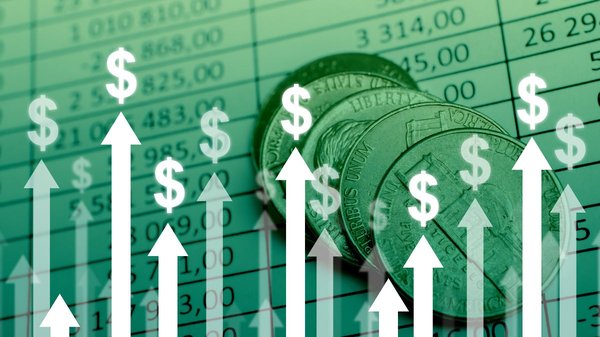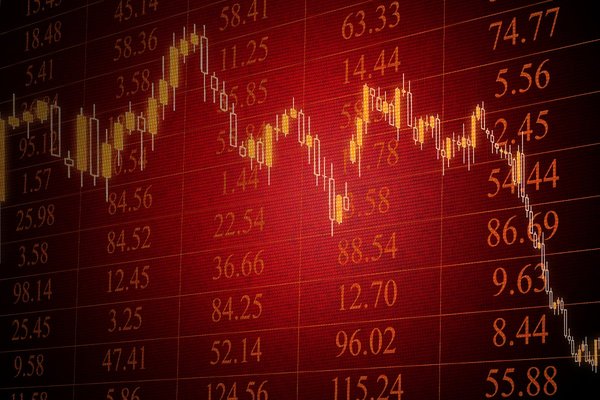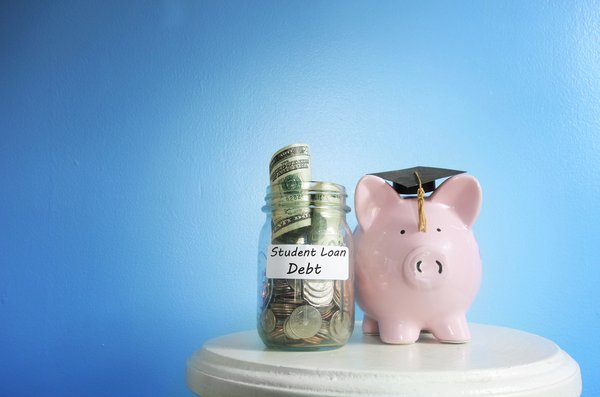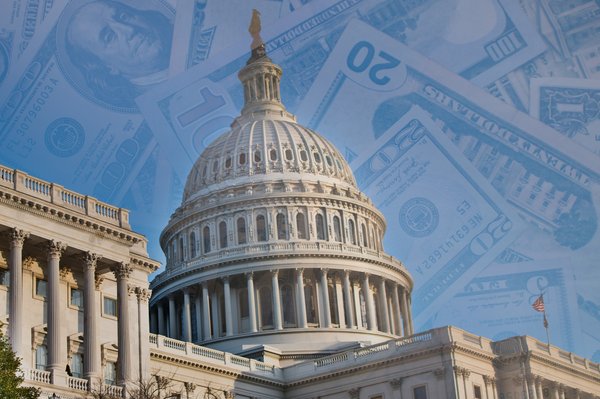As investors weather a significant market downturn, many are shifting their focus to the energy sector. Energy is often seen as a safe investment pick in tough times since people and businesses always need power to keep the lights on.

Talk about energy stocks often turns to renewables -- solar, wind, geothermal, and the like. As countries around the world pivot to decreasing their reliance on fossil fuels, the renewable energy sector looks like a promising place to invest.
But what do everyday investors think about renewables? Are they investing? Will they increase their investments in the future? Are they buying, holding, or selling fossil fuel stocks? And does consumer sentiment suggest this might be a good idea?
To find out, The Motley Fool surveyed 2,000 Americans to learn about their thoughts on renewable energy.
Key findings
- More than 60% of investors own renewable energy stocks or funds, according to a recent Motley Fool survey, and another 27% say they don't but would like to.
- More than half of investors own fossil fuel stocks, and about two-thirds of those investors plan on continuing to invest in fossil fuel companies.
- Three-quarters of investors research companies' renewable energy or sustainability goals before investing.
- Consumers, homeowners, and renters find value in renewable energy -- a good sign for companies that place an emphasis on renewables.
More than 60% of investors own renewable energy stocks or funds, and the number is likely to rise
According to a recent survey from The Motley Fool, 62% of investors currently invest in renewable energy stocks or funds, and 27% don't but would like to. This means almost 90% of investors do, or probably will, invest in renewable energy stocks.
Only 10% of investors don't currently invest in renewable stocks and don't plan on doing so in the future.
This holds across most age groups and political affiliations. Investors 45 and older were split down the middle on whether they did or didn't own renewable stocks, but 70% of those who don't (totaling 35% of investors 45 and older) say they plan on it.
Younger investors are more likely to already own renewable energy stocks or funds, with 68% of investors younger than 45 already owning them and another 24% wanting to.
Republican-voting investors are twice as likely as Democrat-voting investors (15% vs. 7%) to say they don't own renewable stocks and don't plan to in the future.
Investors aren't ready to let go of fossil fuel stocks
Even though investors are embracing renewables, they're not divesting from fossil fuel-related shares. 52% of investors say they currently own fossil fuel stocks, and about two-thirds of them plan on keeping them.
While slightly less than half of investors don't own fossil fuel stocks, about half of those who don't own them say they'd like to in the future, indicating continuing interest in industries such as oil, coal, and natural gas.
Investors younger than 45 and those who tend to vote Democrat were more likely to say that if they own fossil fuel stocks now, they won't in the future.
Three-quarters of investors research companies' renewable energy or sustainability goals before investing
74% of investors in the Motley Fool survey said that part of their stock research includes a company's goals and policies on renewable energy or sustainability goals.
In looking at groups of respondents, 79% of investors younger than 45, regardless of political party, do this research before investing. This is an encouraging number for the world of ESG investing, even though both millennial and Gen Z investors placed ESG factors low on their list of investing priorities.
Again we see a split along political party lines, with 80% of Democrat-voting investors doing this research before investing and 69% of Republican-voting investors doing the same.
Bringing renewable energy to the home is a high priority for homeowners and renters
Investors are clearly interested in renewable energy stocks and funds. But what about consumers? Do they want to power their lives with renewable energy? Are they willing to support the companies providing renewable energy to their homes?
This survey says that they are. While 17% of homeowners said they have solar panels on their home, almost half of our respondents said that they don't have them but plan on installing them at some point in the future. That's a good sign for the home solar industry.
Most homeowners across the groups we surveyed are interested in having solar panels installed. Homeowners older than 45 were the most likely to say they weren't interested in installing solar panels (44%), followed closely by Republican-voting respondents (43%).
Among those who don't have solar panels or plan on installing them, about half said they weren't interested because the panels are too expensive.
| Why do you not plan on installing solar panels on your house? | Percentage of respondents |
|---|---|
| They're too expensive | 50% |
| I don't want solar power | 17% |
| They won't work on my roof | 12% |
| I don't know how to get them installed | 12% |
| Other | 9% |
Related energy topics
Renters want in, too
It's not just homeowners who want renewable energy powering their homes. A third of renters in the survey said they'd pay up to 10% more for an apartment building with solar panels.
Slightly more said they wouldn't pay more for a solar-powered apartment, but this group is still in the minority.
Consumers are willing to pay more for products and services powered by renewables
In addition to being interested in powering their homes with renewable energy, Americans are also interested in buying products and services that are manufactured or run using renewables.
Only 29% of respondents said they wouldn't pay more for a product or service manufactured or run using only renewable energy.
Most people said they'd pay up to 10% more, but a significant minority said they'd pay up to 50% more, and 8% even said they would pay more than 50% more for these products and services.
Outside experts weigh in

Victor B. Flatt
Do you think more companies will commit to sustainable standards in the coming future? Why?
Yes, companies will continue to migrate towards sustainability and sustainable standards as is demanded by consumers, investors, and financers. At this point in time, certainly large companies must have a sustainable presence or they will be penalized by investors who are looking for sustainable investing. I only expect this to grow.
What sort of regulations do you foresee that will ultimately prevent companies from inflating their sustainable practices (a.k.a. greenwashing) and how can consumers make more educated decisions on which sustainable funds to invest in?
I believe the biggest problem with greenwashing is that we don’t have any standard definition for what “sustainable” means. For some it is lowering a carbon footprint. For others it is how goods and energy is sourced. Others may look at water or plastics. While they are many sustainability ratings agencies they don’t all use the same standards or formula, which is how ExxonMobil made it on to the Dow Jones Sustainability Index this year, while Tesla was kicked off.
But moving forward, I foresee more government standardization of disclosure practices. Currently the Securities and Exchange Commission (SEC) is proposing rules to standardize greenhouse gas emission reporting, and also to standardize what ESG labels need to mean for investment companies. This will at least bring about more common definitions and thus better align what companies are doing with actual consumer and investor expectations.

Paul A. Griffin
Do you think more companies will commit to sustainable standards in the coming future? Why?
Yes. Here are six reasons.
- Regulations will force them to do so. The Securities and Exchange Commission Rule (Release Nos. 33-11042; 34-94478; File No. S7-10-22) could be effective as early as next year. This applies to all U.S. registered public companies other than small businesses. SEC oversight will flag misleading or incomplete compliance. Publication of misleading or incomplete compliance will affect company reputation and decrease shareholder value.
- NASA/DoD/GSA contractors will be required to disclose sustainability information (Federal Acquisition Regulation: Disclosure of Greenhouse Gas Emissions and Climate-Related Financial Risk (48 CFR Parts 1, 4, 9, 23 and 52) to acquire a contract. This will apply to all U.S. government contractors other than small businesses. The federal contractor rules could be effective in 2024, with the first disclosures the following year. Government contracts would simply not be signed if there is non-compliance. Such loss-of-opportunity penalty would be substantial. GAO publication of misleading or incomplete compliance would also affect company reputation and decrease shareholder value.
- California SB 260 and the AB32 scoping plan to reduce emissions to at least 40 percent below 1990 levels will likely pass during the next session (in 2023) of the State government. Once implemented in California, other states will follow.
- Shareholder activism will force them to do so. Shareholder proxy statement activism on climate- and sustainability-related action is at an all-time high (As You Sow 2022). These shareholder engagements increase pressure on firms to adopt and disclose on science-based targets.
Focal firms also suffer when a peer firm adopts ESG principles. However, some shareholder actions can force firms to internalize costly negative externalities, which generates lower returns.
However, as ethical investors benefit, a profit maximizing firm may decrease in value and offer lower returns for the non-pecuniary benefits of a firm engaging in an ESG strategy. Ethical investors, however, are willing to accept lower returns for climate-related benefits.
Large institutions acting as ESG gadfly investors have generally increased shareholder value.
Voluntary ESG disclosure in response to shareholder engagement generally increases firm value.
The trend of a higher number of independent board member also increases the likelihood that a firm will act on climate issues. Greenwashing is also monitored by U.S. government agencies. - Voluntary disclosure will force them to do so. Risk underpricing through lack of ESG disclosure is becoming increasingly obvious to investors and asset managers.
To avoid market shocks and contagion all of which is unnerving for markets, firms will have to increase ESG disclosure and, thus, be more transparent about climate and ESG risk. - Appointment of chief sustainability officer and sustainability-based compensation based on meeting targets will increasingly occur and incentivize more ESG action and disclosure.
What sort of regulations do you foresee that will ultimately prevent companies from inflating their sustainable practices (a.k.a. greenwashing) and how can consumers make more educated decisions on which sustainable funds to invest in?
In rough order of importance, here are seven forms of regulation or other activity that will ultimately prevent and punish companies from inflating disclosure on their sustainable practices. Private equity investments will also play a major role.
- Enforceable regulations will be implemented in the near future (SEC disclosure rules, NASA/DoD/GSA contractor rules).
- The Courts will redefine the concept of financial materiality to include civil liability for intentional actions or gross negligence that result in omitted or misleading ESG information for outsiders.
- Whistleblower actions will relate more to ESG. Whistle-blower laws already on the books (e.g., SEC, EPA) will increasingly be used to expose lies, misleading disclosures, and greenwashing.
- Increased use of anti-SLAPP protection for employees and citizens. Under anti-SLAPP law, current and past employees have free speech protection for speaking out on misleading and omitted information issued by a company. Anti-SLAPP free speech protection will increase the accuracy and quality of public information on ESG about a firm.
- Regulations that indicate specific measures and science-based targets will become more commonplace. When science-based targets are met or not met investors listen carefully and respond quickly. Just as earnings surprises drive the markets, so too will ESG metric surprises (e.g., reduction in emissions).
- Increased monitoring of environmental metrics. Research is now better at identifying virtue signaling firms. This research, based on machine learning and sentiment analysis, is becoming increasingly available to investors and the public. E.g., ClimateBert. The Federal Trade Commission also is involved in monitoring greenwashing.
- Auditor involvement to provide assurance of quality and consistency with a disclosure framework such as that of the TCFD. Auditor involvement is a key element of the SEC proposal. Adherence to the TCFD framework is also a part of the NASA/DoD/GSA rules.
Private Equity. The increased role of solutions offered by private equity will lower the cost and improve the quality of ESG information available for investors. It will reduce public distrust, also a concern.
According to PitchBook.com, at least $1 billion of private equity has already been invested in carbon mapping solutions for firms.
Watershed is already worth more than $1 billion in market capitalization.
The world market size for clean tech is substantial, expected to be $3 trillion by 2025. According to the International Energy Agency (IEA), the global CleanTech market will surpass the value of the oil market by 2030.
A brief counterargument on greenwashing. Just as many critics complain about the worrisome effects of "earnings management," the prevalence and impact of greenwashing may be overblown, especially when product quality is high, according to Harvard Business Review research. Moreover, investors and others may have already factored it into firm values and return expectations. Countries with stricter regulations already have less greenwashing. The literature on greenwashing may also be biased to find “positive” results, which are more easily published.
Conclusion
The future for renewables looks good for investors.
Investors are interested in buying more renewable stocks and funds. Consumers are willing to pay more for products/services made with renewables. Both homeowners and renters are interested in the solar industry.
The progress of the industry also depends heavily on technology and legislation both at the federal and state level. But in looking at investor and consumer sentiment, the future of renewable energy looks bright.
Methodology
The Motley Fool distributed this survey to 2,000 U.S. adults via Pollfish on Jan. 24, 2023.
Respondents were 57% female and 43% male. Age breakdowns were approximately 11% ages 18 to 24, 23% ages 25 to 34, 28% ages 35 to 44, 19% ages 45 to 54, and 18% older than 54. 40% of respondents reported generally voting for Democrats, 30% for Republicans, and 30% for independent/other.

























































